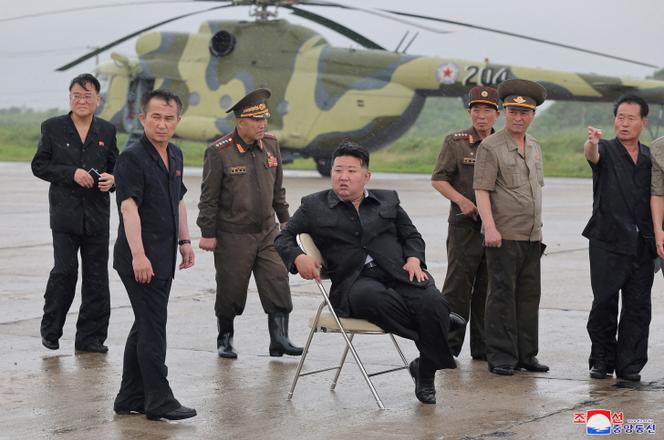


On Thursday, August 15, South Korea celebrated the 79th anniversary of the end of Japanese colonization – but the focus was more on North Korea than on Japan. South Korean President Yoon Suk Yeol took advantage of the occasion to launch the idea of a "unification based on freedom" and set out a series of proposals and commitments, including an ongoing offer of aid to victims of natural disasters in its enemy, North Korea.
This is a timely proposal, since North Korea is currently facing the consequences of major flooding along the Chinese border to its north. Furthermore, worsening weather conditions in late summer could affect its agricultural production, according to the UN's Food and Agriculture Organization (FAO).
In an August 12 forecast for the period from August to October, the FAO stated, "Heavy rains could exacerbate waterlogging and lead to further flooding, causing significant agricultural damage and population displacements. In addition, above‑average temperatures are forecast during the same period, raising the risk of increased incidences of pest and disease infestations, and potentially reduced yields." The harvest of staple crops (rice, maize and, to a lesser extent, potatoes, millet and sorghum) is due to start at the end of August.
New food shortages would exacerbate the problems of undernourishment that the population has suffered from since the great famine of the mid-1990s. Several hundred thousand people died as a result.
But the issue is a priority for the regime. In his first public speech in 2012, North Korean leader Kim Jong-Un promised that North Koreans would "never have to tighten their belts again." Subsequently, he implemented agricultural reforms in order to introduce some private management into the sector.
In 2013, he revived the "byungjin" ("parallel development") policy formulated in 1962 by his grandfather, Kim Il-Sung (1912-1994), by placing economic development on par with strengthening national defense. Nor does he hesitate to publicly acknowledge the difficulties facing the agricultural sector. In January, he lamented "an inability to satisfactorily supply people in the regions with basic necessities, including food."
Despite these efforts, results have been lacking: according to a study by the South Korean Ministry of Unification, 72% of refugees who passed through the South between 2016 and 2020 said they had never received the daily food rations distributed by the government – 400 grams a day, less than the minimum 600 g recommended by the UN. The same was true for 62% of those who arrived before 2000.
You have 33.2% of this article left to read. The rest is for subscribers only.
